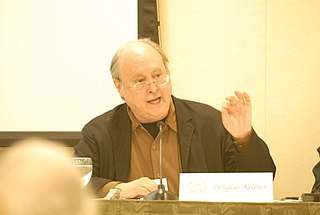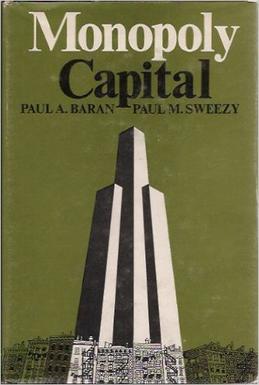An information society is a society or subculture where the usage, creation, distribution, manipulation and integration of information is a significant activity. Its main drivers are information and communication technologies, which have resulted in rapid growth of a variety of forms of information. Proponents of this theory posit that these technologies are impacting most important forms of social organization, including education, economy, health, government, warfare, and levels of democracy. The people who are able to partake in this form of society are sometimes called either computer users or even digital citizens, defined by K. Mossberger as “Those who use the Internet regularly and effectively”. This is one of many dozen internet terms that have been identified to suggest that humans are entering a new and different phase of society.

The Frankfurt School is a school of thought in sociology and critical philosophy. It is associated with the Institute for Social Research founded at Goethe University Frankfurt in 1923. Formed during the Weimar Republic during the European interwar period, the first generation of the Frankfurt School was composed of intellectuals, academics, and political dissidents dissatisfied with the contemporary socio-economic systems of the 1930s; namely, capitalism, fascism, and communism.
The knowledge economy, or knowledge-based economy, is an economic system in which the production of goods and services is based principally on knowledge-intensive activities that contribute to advancement in technical and scientific innovation. The key element of value is the greater dependence on human capital and intellectual property as the source of innovative ideas, information and practices. Organisations are required to capitalise on this "knowledge" in their production to stimulate and deepen the business development process. There is less reliance on physical input and natural resources. A knowledge-based economy relies on the crucial role of intangible assets within the organisations' settings in facilitating modern economic growth.
Moishe Postone was a Canadian historian and social theorist. He was a professor of history at the University of Chicago, where he was part of the Committee on Jewish Studies.
Social peer-to-peer processes are interactions with a peer-to-peer dynamic. These peers can be humans or computers. Peer-to-peer (P2P) is a term that originated from the popular concept of the P2P distributed computer application architecture which partitions tasks or workloads between peers. This application structure was popularized by file sharing systems like Napster, the first of its kind in the late 1990s.
Intellectual property assets such as patents are the core of many organizations and transactions related to technology. Licenses and assignments of intellectual property rights are common operations in the technology markets, as well as the use of these types of assets as loan security. These uses give rise to the growing importance of financial valuation of intellectual property, since knowing the economic value of patents is a critical factor in order to define their trading conditions.

Douglas Kellner is an American academic who works at the intersection of "third-generation" critical theory in the tradition of the Frankfurt Institute for Social Research, or Frankfurt School, and in cultural studies in the tradition of the Birmingham Centre for Contemporary Cultural Studies, or the "Birmingham School". He has argued that these two conflicting philosophies are in fact compatible. He is currently the George Kneller Chair in the Philosophy of Education in the Graduate School of Education and Information Studies at the University of California, Los Angeles.
Criticism of technology is an analysis of adverse impacts of industrial and digital technologies. It is argued that, in all advanced industrial societies, technology becomes a means of domination, control, and exploitation, or more generally something which threatens the survival of humanity. Some of the technology opposed by the most radical critics may include everyday household products, such as refrigerators, computers, and medication. However, criticism of technology comes in many shades.

Monopoly Capital: An Essay on the American Economic and Social Order is a 1966 book by the Marxian economists Paul Sweezy and Paul A. Baran. It was published by Monthly Review Press. It made a major contribution to Marxian theory by shifting attention from the assumption of a competitive economy to the monopolistic economy associated with the giant corporations that dominate the modern accumulation process. Their work played a leading role in the intellectual development of the New Left in the 1960s and 1970s. As a review in the American Economic Review stated, it represented "the first serious attempt to extend Marx’s model of competitive capitalism to the new conditions of monopoly capitalism." It attracted renewed attention following the Great Recession.

Daniele Archibugi is an Italian economic and political theorist. He works on the economics and policy of innovation and technological change, on the political theory of international relations and on political and technological globalisation.

Capitalism, Socialism, and Democracy is a book on economics, sociology, and history by Joseph Schumpeter, arguably his most famous, controversial, and important work. It's also one of the most famous, controversial, and important books on social theory, social sciences, and economics—in which Schumpeter deals with capitalism, socialism, and creative destruction.

Stephen Gill, FRSC is Distinguished Research Professor of Political Science at York University, Toronto, Ontario, Canada. He is known for his work in International Relations and Global Political Economy and has published, among others, Power and Resistance in the New World Order, Power, Production and Social Reproduction, Gramsci, Historical Materialism and International Relations (1993), American Hegemony and the Trilateral Commission (1990) and The Global Political Economy: Perspectives, Problems and Policies.

Corporatism is a political system of interest representation and policymaking whereby corporate groups, such as agricultural, labour, military, business, scientific, or guild associations, come together on and negotiate contracts or policy on the basis of their common interests. The term is derived from the Latin corpus, or "body".

Technology, society and life or technology and culture refers to the inter-dependency, co-dependence, co-influence, and co-production of technology and society upon one another. Evidence for this synergy has been found since humanity first started using simple tools. The inter-relationship has continued as modern technologies such as the printing press and computers have helped shape society. The first scientific approach to this relationship occurred with the development of tektology, the "science of organization", in early twentieth century Imperial Russia. In modern academia, the interdisciplinary study of the mutual impacts of science, technology, and society, is called science and technology studies.
Democratization of technology refers to the process by which access to technology rapidly continues to become more accessible to more people. New technologies and improved user experiences have empowered those outside of the technical industry to access and use technological products and services. At an increasing scale, consumers have greater access to use and purchase technologically sophisticated products, as well as to participate meaningfully in the development of these products. Industry innovation and user demand have been associated with more affordable, user-friendly products. This is an ongoing process, beginning with the development of mass production and increasing dramatically as digitization became commonplace.

Professor Xiaolan Fu is a British-based Chinese economist, and Fellow of the Academy of Social Sciences. She is the Founding Director of the Technology and Management Centre for Development (TMCD). She is a Professor of Technology and International Development and Fellow of Green Templeton College at the University of Oxford.
The Indigo Era is a concept publicized by businessman Mikhail Fridman, describing what he views as an emerging new era of economies and economics based on ideas, innovation, and creativity, replacing those based on the possession of natural resources. Fridman is the co-founder of LetterOne, an international investment business, and first publicized the idea in early 2016. The word "indigo" was initially chosen based on the term indigo children, which has been used to describe people with unusual and innovative abilities.

Koray Caliskan is a Turkish economic sociologist and organizational designer. He is a tenured professor at Parsons School of Design, The New School, Associate Editor of the Journal of Cultural Economy, the Editor-in-Chief of Journal of Design Strategies. He is the founder of Mamame, a social innovation project bringing together the organizational form of cooperative and limited liability company in economizing under-represented women’s labor, which won the Entrepreneurship of the Year Award in 2017 from Microsoft Turkey. He is the co-founder of The Wrong Department, an international strategic design studio with office in London and New York City. He is married and has two children, living in Brooklyn, New York City.
William E. Halal is an American aerospace engineer, air force officer, academic, author, consultant, and speaker. He is Professor Emeritus of Management, Technology & Innovation at George Washington University as well as the Founder and President of TechCast, a web-based system that uses knowledge to forecast breakthroughs on emerging technologies and social trends.

The World Intellectual Property Report (WIPR) is a biennial analytical publication by the World Intellectual Property Organization, an agency of the United Nations. Each report examines a different theme, focusing on trends in a particular area of intellectual property and innovation. The report uses macroeconomic analysis and includes case studies to examine the role of intellectual property and other intangibles in the global economy.










